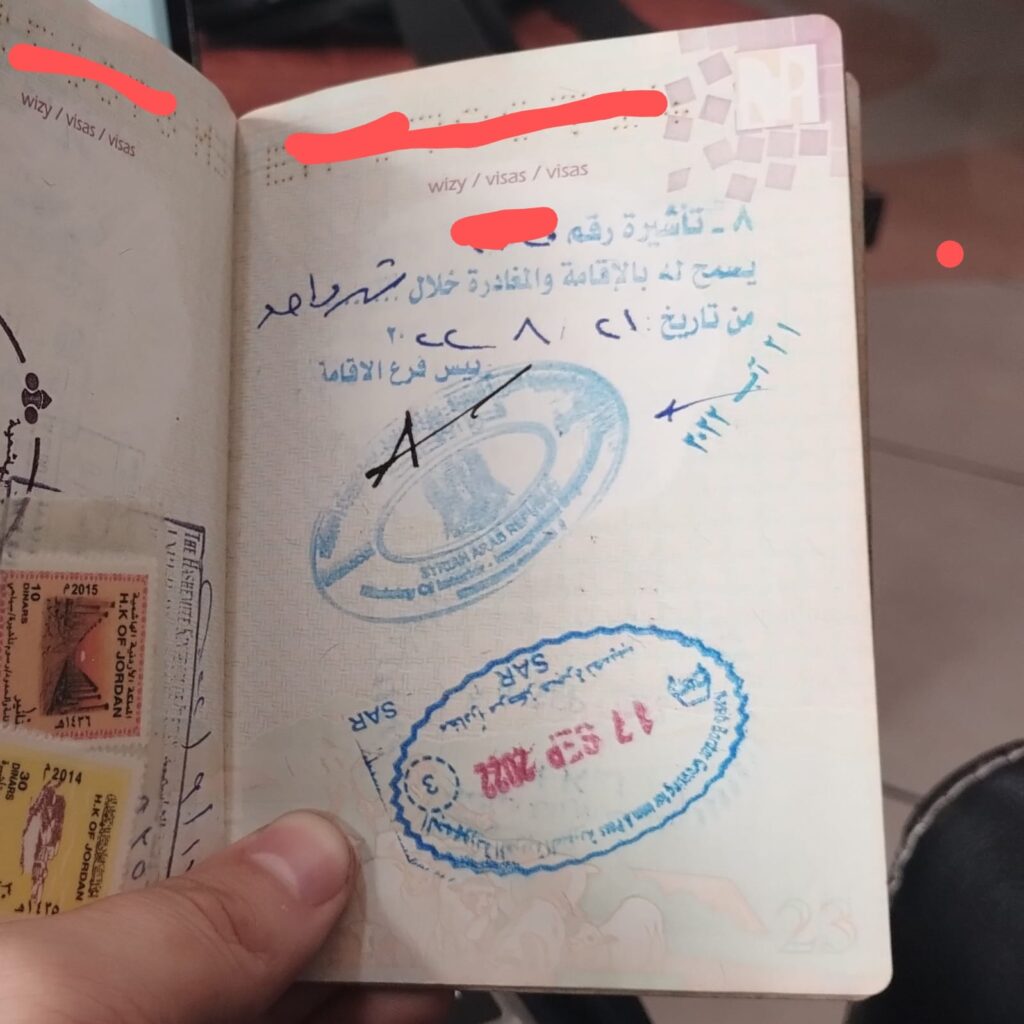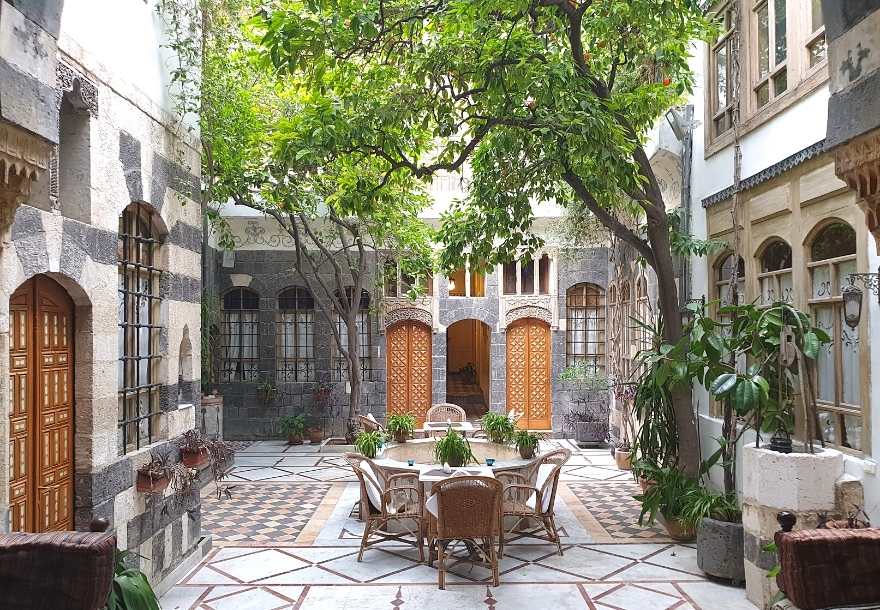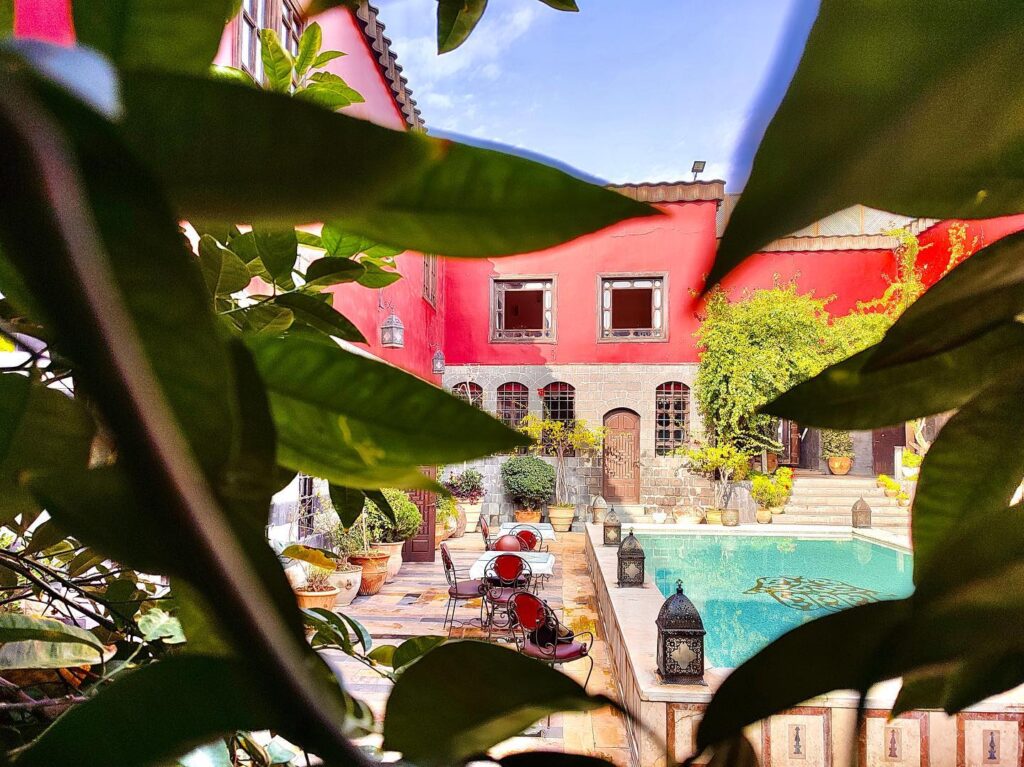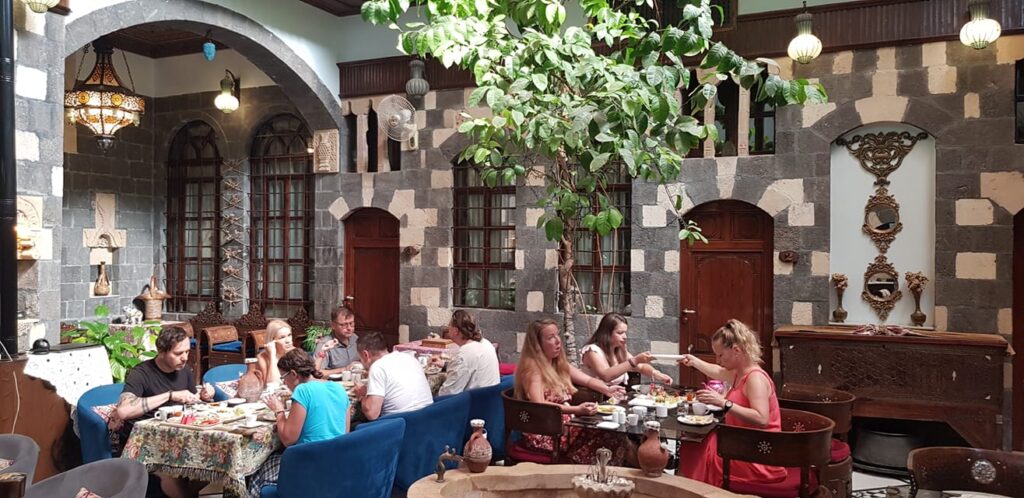In the last year or so, several news agencies have written articles about the recent post-war “tourism boom” in Syria. Many of them claim that tourism in Syria is not ethical, seeing as tourist visits, especially those of influencers, amount to “whitewashing” the Syrian government, as claimed by The Washington Post. But, as someone who has been running tours to Syria, as well as to Iraq, since 2019, I have seen first-hand how tourism has affected these countries in a positive manner. I argue that tourism in Syria gives hope to the Syrians that are resident in the country, it reduces international isolation, and it has positive effects of the economy. Not only do I believe that most news outlets ignore the effects of tourism on Syrian people living inside Syria, but I also believe that they are being pushed by a certain agenda. I will get into this more later in the article.
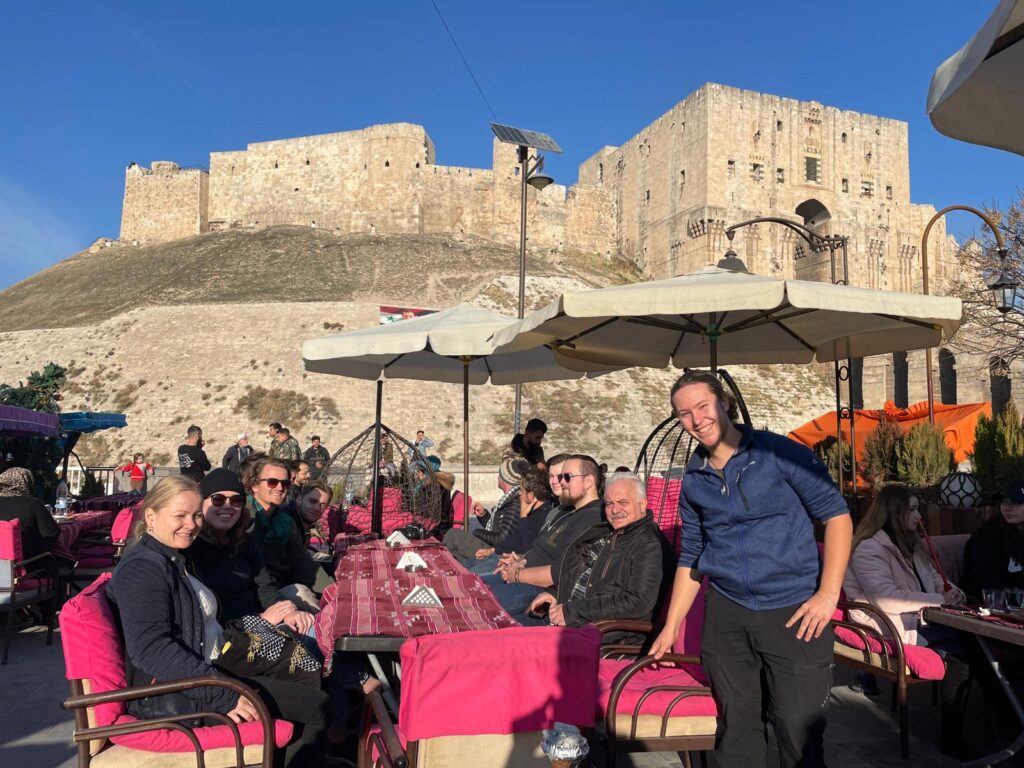
Hope and effects on the economy.
While the Syrian government might benefit from the image of foreign tourists travelling through Syria with the government being the guarantor of their safety, the Syrian people benefit as well. The vast majority of Syrians living inside Syria are thrilled by the idea of tourism returning to the country. In my years of experience running tours in Syria, I have not witnessed one single incident of anomosity or contempt directed towards us. Quite the opposite – people welcome us with open arms and are intrigued to see us! In fact, most Syrians I talk to view tourism as a sign that the country is returning to normality after such brutal years, and it is a sign of hope in an otherwise gloomy economic situation.
Tourism is not only about appearances but also real economic impact. Of course, the tourism sector is still a fraction of what it was before the crisis, but if the current trend continues, it’s only going to get bigger. The changes I’ve seen within the last few years are visible. New hotels have sprung up, tourist guides who’ve been idle for years are now working again, and other projects are starting up as well. Syria was an extremely touristic country before the war, with many people earning their livelihoods in this sector. In fact, in 2010, there were 8.5 million foreign visitors in the country. I believe this can happen again.
Palmyra, previously one of Syria’s most visited places before the war, now seems like more of a ghost city. It was heavily damaged and most of the residents fled. However, for the increasing number of returnees, it’s important to note that tourism is, slowly but surely, picking up again. A tourist restaurant in a Bedouin tent has even opened up beside the ruins, and it’s only a matter of time before a hotel starts to resume operations. These things are good for Syria. They employ locals, and make an impact, however small, on the dire state of the Syrian economy today. Thus, from the economic aspect, I would argue that tourism in Syria is ethical.
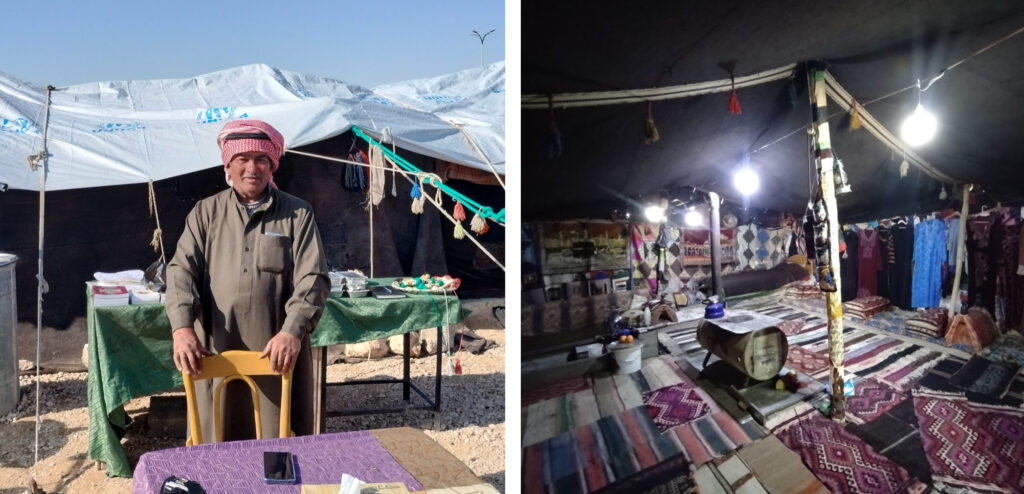
Reduced international isolation.
Those that oppose tourism in Syria are vouching for Syria’s continued international isolation. This has been a major factor in the current suffering of Syria’s people, its economy, and it stifles opportunities. Syria’s diplomatic, economic, and to some extent even educational isolation has resulted in extremely difficult international money transfers, large obstacles in foreign trade and the lack of foreign embassies, meaning that Syrians have to travel abroad for visas that they have a high chance of being rejected for anyways. Many notable foreign websites are also banned in Syria, such as Wikipedia, Duolinguo, ChatGBT, almost all Western banking applications, and many educational websites. This is not the doing of the Syrian government, but rather because those businesses/organisations ban users with Syrian IP addresses. The lack of foreign tourists is just another form of international isolation.
Much of this isolation is a direct result of sanctions. Heck, even helping Syria produce electricity is sanctioned by the UK and EU, which aren’t even half as strict as the US sanctions. Tourism to Syria, however, is one of the few activities not sanctioned or restricted by foreign governments, thus providing a window for Syrians to the outside. Even though tourism in Syria is not sanctioned, there is a media campaign against it. Let’s not let that media campaign succeed!
But let’s face it, there are some Syrians, predominantly living outside of the country, who say that tourism in Syria is a bad thing. I believe that their hatred for the Syrian government is so bad that it overlooks the positive affects of tourism for Syrians living in Syria today. For them, anything that benefits the Syrian government is bad, often even if the regular Syrian benefits as well. They advocate for the international isolation of Syria, which does no good for the people living there today, regardless of your views on the government.
We’re changing the image of Syria.
Internationally, Syria is viewed by the majority of people as a war zone filled with extremist Islamist groups. When the word “Syria” is mentioned, it’s common for the words “ISIS” or “war” to come to mind. While the recent history of Syria has been brutal – an unimaginable war of immense suffering – there is so much more to the country than that. Most foreigners find it hard to believe that many Syrian women do not wear headscarves and that booze-filled nightlife is not only available, but world-class. The charm of Syria is hard to match, with the architectural wonders of old Damascus, and ancient soap-making processes of Aleppo being jaw-dropping for even the most well-travelled visitors. Such beauty deserves to be known, and not just domestically. We aim to show our visitors as many different sides to Syria as we can. The war is certainly one side that we wish to show, but it’s one of many. We hope that in the future, when the word “Syria” is uttered, a more diverse set of ideas spring to mind.
So, they’re not propaganda tours?
Many people claim that, seeing as you must have a licensed Syrian tour guide accompany your visit to the country, that means that they’re going to prevent you from seeing the reality, or that they will paint a distorted image of the country with a political narrative. At least on our tours, this certainly isn’t true.
Firstly, independent travel (without a tour guide) is not impossible, though it is difficult. See this article to know more. It’s not as if the government is mandating a “chaperone” to every foreinger, controlling what they see, as some articles have claimed. There are no-go areas, though, of course. The war has not ended in all of Syria, and even in parts of the country that it has ended in, memories and tensions are still fresh, so you shouldn’t expect to have the travel freedom that the country once offered before the war.
The tour guide “rule” is only present if you enter the country with help of a tourism agency, but not if you enter with an individual invite. But even if you do have a tour guide with you, they are in general great people which have decided to study tourism and take a tour guide examination in order to work in this field. This means that the quality of tour guides in Syria is very high. Most of them have studied tourism for years in order to provide you this service. Their knowledge of Syria’s historical and cultural sites is exceptional. I’ve become good friends with many tour guides in Syria that I have worked with over the years and for them, the more tourists, the better.
It’s true that some tour guides will try to tell you their political opinions, but nobody tries to act like “everything in Syria is okay”. It’s not, full stop. I can’t speak about other tours, but on our tours to Syria, we don’t attempt to gloss over the suffering of the Syrian people. You will see suffering, you will see destruction, and you will see locals queing up for hours in the bread lines to feed their families. But as I’ve said, this is one of multiple realities in Syria – there is so much happening in the country at the same time. You will also see historical sites, traditional marketplaces, restaurants full of life and even night clubs. Such vibrant life exists right next to the destruction, and we intend on showing you both.
In nature, our tours are not political. We’re not pushing the agenda of any government or organisation. Our aim is to show you the Syria that we love, whilst not ignoring the harsh realities that the majority of Syrians have lived and continue to live. Whatever conclusions you take away will be yours to make.
“But I have a Syrian friend that can’t go back…”
It’s true that many Syrians living abroad are unable to return to their homeland, for multiple reasons. The most common reason, especially for men, is military service, which is compulsory for all males who are not the only son of their parents and have not paid a military expemption fee. Others cannot return for political reasons, while others, if holding refugee status in Europe or elsewhere, would lose that status by doing so, and thus don’t visit. As such, your privilege to be able to visit Syria is something that many Syrians abroad don’t have. I personally feel very priveleged that I can visit/live in Syria without the issues that many Syrians face. This is something that might make you feel guilty, and rightly so, but as I previously explained, there are many positives regarding tourism in Syria as well. In my opinion, these positives outweigh the negatives, thus making tourism in Syria ethical.
“Dark tourism is super unethical, though”.
One’s intentions and sensitivity to the war and suffering is extremely important. Learning about the war and visiting sites of destruction isn’t necessarily wrong, in my opinion. But one must be extremely sensitive. Taking selfies in front of destroyed homes, as if they were a tourist attraction is completely insensitive to the family that lost that home, or the people that died there. If your intention is to disrespect Syria and the suffering of the Syrian people, then you certainly shouldn’t come to Syria! Tourism in Syria is ethical only if your intentions are in the right place. Furthermore, if you’ve got your own political agenda then you should also think twice before coming to the country.
“So what is this media agenda you’re talking about?”
As I mentioned in the introduction, many news outlets, predominantly Western, are pushing the narrative that visiting Syria is unethical due to tourism whitewashing the Syrian government. It’s been a common theme for them to interview Syrian activists living abroad talking about how tourism in Syria is benefitting the government, something which they argue is unacceptable. But what about those who support tourism in Syria, which I believe are the majority of Syrians, especially those living inside of Syria, where the direct consequences of tourism are felt. Where are the interviews with them?
I’ve actually been interviewed a few times by Western outlets about my tourism work in Syria, most notably by Kaamil Ahmed for The Guardian and Charles Davis for The Daily Beast. Kaamil Ahmed and I spent around an hour talking about tourism in Syria, where he asked me whether I believe tourism in the country is ethical or not. I responded with much the same arguments that I’ve conveyed in this article. I accept criticism should I be given the right to respond. However, not a single one of my arguments that I conveyed during the interview was explained by Mr. Ahmed in the article. Furthermore, not a single Syrian in favour of tourism was interviewed to give their opinion, which, as I’ve said, I believe to be the majority, especially among those inside Syria. In addition to this, there were factual inaccuracies in the article, such as how Jaabar citadel “is again becoming a top tourist destination”. This couldn’t be further from the truth, as the citadel is located in areas controlled by the SDF, which is completely off-limits to tourists, and extremely difficult for other Syrians to access as well (requiring sponsorship etc.). Maybe these Guardian journalists should do a little more research before publishing!
I believe that far and large, Western media gives platform to those in support of Syria’s international isolation, which includes tourism, disregarding the opinions and lives of people living in areas of Syrian government control today. So it’s hardly surprising that they argue that tourism in Syria is not ethical, despite its potential to be a means of revival for the country.
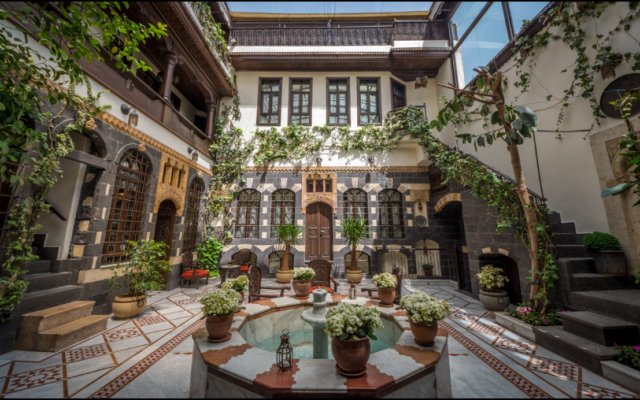
All in all, I argue that tourism in Syria is not only ethical, but it is one of the means for the country to improve. It brings hope to Syria for a return to normality, while helping create livelihoods for those working in the tourism sector, which ultimately has a knock-on effect to other sectors of the economy. Furthermore, it helps reduce Syria’s international isolation, while giving the outside world a fuller picture of what Syria really is – more than just the Islamist hellhole that so many believe. While you might feel guilty about visiting a country that so many locals are unable to visit, this is a negative which I believe is outweighed by the positives. With that being said, if you have a political agenda, or you see destroyed homes as a “tourist site”, then perhaps visiting Syria right now isn’t the right thing to do.
